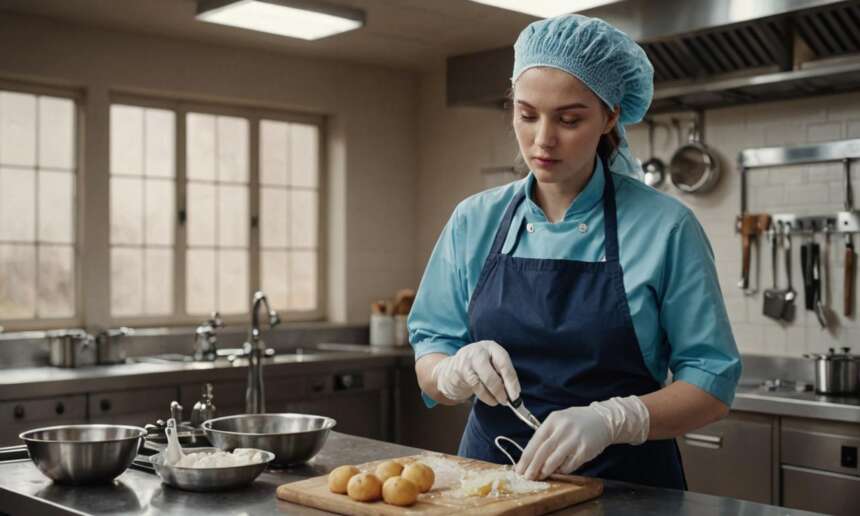Food handlers play a crucial role in ensuring food safety and maintaining public health standards. Understanding who qualifies as a food handler and their responsibilities is essential for anyone involved in the food industry.
Definition of a Food Handler
A food handler is an individual who works with food in any capacity, from preparation to serving. This includes chefs, cooks, servers, bartenders, and anyone else involved in the handling or serving of food and beverages.
Responsibilities of a Food Handler
Food handlers are responsible for maintaining high standards of hygiene and safety throughout the food preparation and serving process. Their duties may include:
- Properly washing hands before handling food
- Wearing appropriate protective clothing, such as gloves and hairnets
- Ensuring that food is stored, cooked, and served at safe temperatures
- Preventing cross-contamination between different food items
- Following proper food storage and handling procedures
- Regularly cleaning and sanitizing kitchen equipment and surfaces
- Monitoring food expiration dates and disposing of expired items
Importance of Food Handlers
Food handlers play a critical role in preventing foodborne illnesses and ensuring that consumers can safely enjoy the food they eat. By following proper hygiene and safety protocols, food handlers help reduce the risk of contamination and the spread of harmful bacteria and viruses.
Training and Certification
Many jurisdictions require food handlers to undergo specific training and obtain certification to ensure they have the knowledge and skills necessary to handle food safely. This training may cover topics such as food safety regulations, proper hygiene practices, and techniques for preventing foodborne illnesses.
Food handlers are essential members of the food industry, responsible for upholding food safety standards and protecting public health. By understanding who qualifies as a food handler and their responsibilities, we can work together to ensure that the food we serve is safe and healthy for consumption.
Frequently Asked Questions
Here are some commonly asked questions regarding food handlers:
- What are the basic hygiene practices for food handlers? – Basic hygiene practices include washing hands thoroughly before handling food, wearing clean protective clothing, avoiding bare hand contact with ready-to-eat food, and keeping hair restrained.
- Why is proper food handling important? – Proper food handling is crucial for preventing foodborne illnesses, which can have severe health consequences. It also maintains the quality and integrity of the food being served.
- How often should kitchen equipment be cleaned and sanitized? – Kitchen equipment should be cleaned and sanitized regularly, ideally after each use to prevent cross-contamination and the buildup of harmful bacteria.
Regulatory Compliance
Food handlers must adhere to various regulatory requirements set by local health departments or governing bodies. These regulations often dictate specific procedures and standards that food handlers must follow to ensure food safety.
| Regulatory Aspect | Requirements |
|---|---|
| Training and Certification | Completion of accredited food safety training programs and obtaining certification. |
| Hygiene Standards | Adherence to guidelines regarding handwashing, personal hygiene, and cleanliness in food preparation areas. |
| Temperature Control | Maintaining proper temperatures for food storage, cooking, and serving to prevent bacterial growth. |




